[Updated Oct 2020] A guide to serviced offices and office space for rent in Tokyo as well as general information that may be useful if you are thinking of renting office space in the city.
For further offices information or to search office space for rent in Tokyo just click. Or contact us for any other office space query.
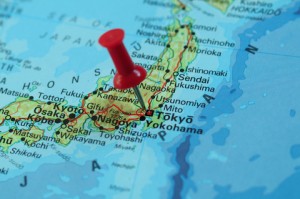 Tokyo
Tokyo
Tokyo is officially designated as one of the several dozen prefectures of Japan but it is known to the world as the country’s capital and one of Asia’s greatest cities. It lies close to a natural harbour along the south coast of the Japanese mainland and began life as a fishing village called Edo. The site has grown steadily in importance on a national scale, particularly during the 16th and 17th centuries after the shogun, a kind of dictator general, made it the capital of his military operations.
During this period, Edo became a vital city and trading port for the whole of Japan, attracted mass immigration and established an almost million-strong population. By the beginning of the 18th century, Edo as it was still known, was one of the populous cities on earth. Towards the end the end of the same century, the shogun was overthrown in the name of the Emperor of Japan, who his maintained a base in Kyoto, another historically important city a few hundred kilometres south-west of Tokyo. Edo Castle became the Imperial Palace and a new name was given to what was now Japan’s capital city in every sense.
Destruction and rejuvenation
The second half of the 20th century has seen Tokyo establish itself as one of the great economic powerhouses of the world. It is regarded as a centre of global finance and in many ways is viewed as Asia’s answer to the alpha cities of London and New York, but this achievement is made all the more remarkable when you consider the devastating events that occurred there in the first half of the century.
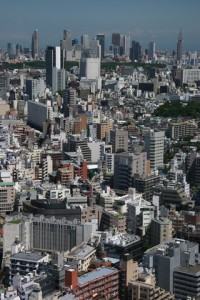
First came the Great Kanto Earthquake of 1923, which left the city almost completely destroyed and tens of thousands of people dead or missing, followed by the Second World War, which saw Tokyo bombed relentlessly by Allied Forces between 1944-45. Both events reduced most of the city’s buildings to either ash or rubble and it took tremendous efforts in public planning and development to rejuvenate the Japanese capital to the point where it could host the Summer Olympics in 1964.
Boom and bust
Immediately after the Second World War, the Japanese economy was in danger of collapsing altogether but a concerted effort by the government, various internal groups and help from the United States instigated a period of record economic growth. The GDP of the country sky-rocketed between the mid-1950s and right through the 1960s as a shift to export trading brought huge financial rewards and secure jobs for a burgeoning population.
By the 1980s, the major cities of Japan were rebuilt and thriving, with Tokyo and its surrounding areas again ranking among the most populous places in the world. The national economy continued to perform strongly for several decades but eventually, some more serious difficulties arose, sparked by the bursting of what turned out to be an asset price bubble in the early 1990s. Stock prices fell steeply and steadily for month after month and precipitated a financial crisis that took close to a decade to turn around.
Strength and competition
Tokyo managed to maintain its position as an important financial and trading centre for the regional and global economy throughout the 1990s, despite the period being thought of by many in Japan as something of a ‘lost decade’. Prior to the bursting of the asset price bubble in 1991, the Tokyo Stock Exchange was the strongest in the world but that position is now occupied by the New York Stock Exchange. There are more than 2,000 companies listed on the TSE, including many of the world’s largest corporations and Asia’s best-known companies.
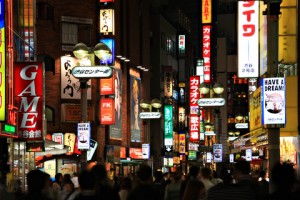
In recent years, Tokyo has been facing ever stiffening competition from rival economies in its region, like those of China and India, which have seen economic miracles of their own. Nevertheless, the city’s heritage as a centre of banking, insurance, publishing and broadcasting has stood it in good stead and sustained what is the largest urban economy in the world.
Tokyo office space for rent
There are dozens of smaller cities surrounding Tokyo’s central business district, where hundreds of major Asian and global operators have office space bases. Prices associated with office space to rent in the heart of Tokyo tend to be among the highest to be found anywhere in the world, given the demand for high-quality space at any given time. However, the market for commercial premises in the city was damaged dramatically in the wake of the 2008 global financial crisis and vacancy rates rose sharply in its aftermath.
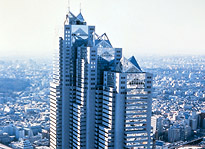
With more globally operative businesses based in the Japanese capital than any other city in the world, interest in office space to rent in Tokyo is always likely to remain strong but relatively high vacancy rates mean there could be significant opportunities to find Grade A offices to rent at reasonable prices.
The city’s commercial property sector could also benefit from the strength of the regional market, with CB Richard Ellis recently estimating that almost two-thirds of global office building activity will take place in the Asia-Pacific area over the course of the next few years.
Tourism and culture
Whether for business or pleasure, millions of people from across Asia and around the world make the trip to Japan’s main island and its central city of Tokyo. There are a huge array of sights to see in what is a densely populated, vibrant and historically fascinating location, and you can very easily travel to another part of the island and take in more of what Japan has to offer.
In and around Tokyo itself, there are a number of impeccably designed and well-kept gardens and parks that are a real treat to spend time in. There are also numerous spectacular temples, shrines and imperial buildings that offer a real insight into Japanese cultural traditions. Generally, though Tokyo is known as one of the most hi-tech and modern cities in the world, with communal computer gadgetry having become something of a national obsession. There are of course many fine places to eat, stay and enjoy if you’re looking for business accommodation in Tokyo or its surrounding areas.
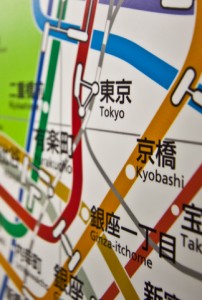
Transport
The quality and efficiency of Tokyo’s transport networks have long been envied and imitated around the world. Train and tram links were viewed as a vital part of its development and the city now boasts an incredibly clean transport system that helps make it a genuinely pleasant place to visit. There are of course road routes and major air transit hubs near-by in the shape of Haneda and Narita International Airport, both of which serve millions of passengers each year.
Sport
Sporting passions in Tokyo stem from a mixture of uniquely Japanese endeavours and activities that draw more on Western inventions. Sumo wrestling is probably the leading example of the former, with the big names drawing thousands of adoring fans to tournaments throughout the year. Meanwhile, local baseball and soccer teams are among the best in Japan and they have established a devout following and a worldwide reputation.
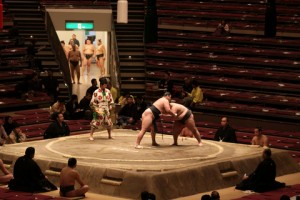
We carry out a free office space search and our advisory and acquisition services are also free, always. Our Tokyo office space brokers and agents are globally regulated by the Royal Institution of Chartered Surveyors (RICS) ensuring the highest standards of commercial property advice and service at all times. We look forward to helping you find the best office space for rent for your business.

Copyright © 2020 The Office Providers (TOPS) Ltd. All rights reserved.